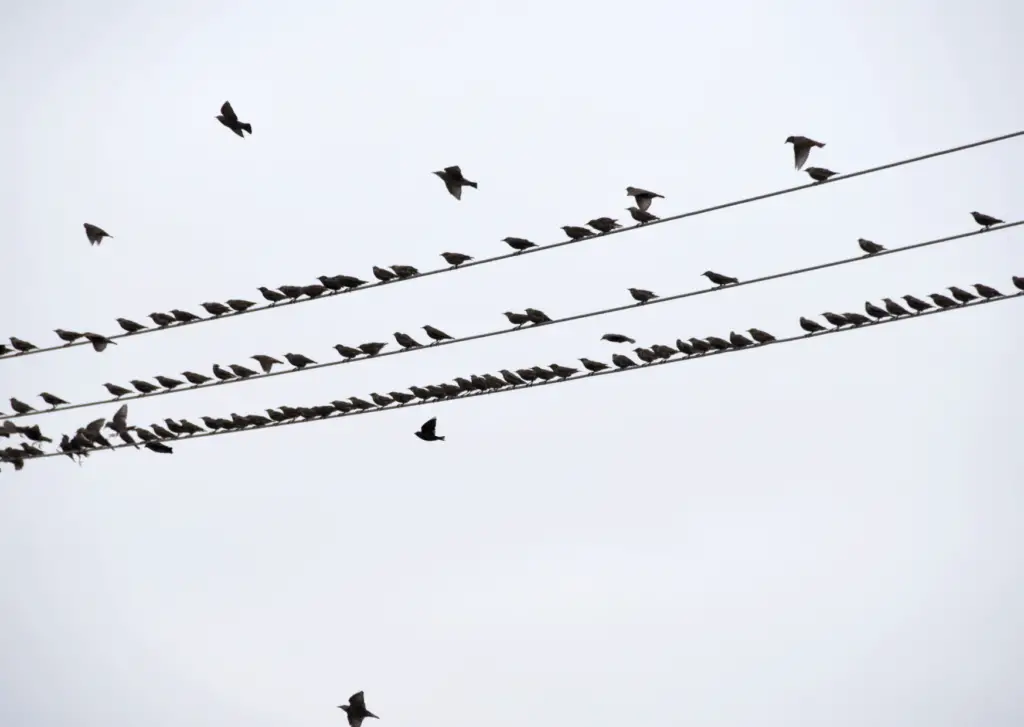By: Isabelle Wang
Many birds get electrocuted on power lines and live wires, but that’s not the only problem. Another problem is that many people shoot at the birds perched on the poles, driving some species to the verge of extinction.
A survey at five sites in the western U.S. concluded that nearly two thirds of the dead birds found had been shot before their death. Many birds near power lines are often assumed to have been electrocuted because they have burns, but they sometimes were already injured or even killed by being shot, said Eve Thomasen, a scientist at Boise State University in Idaho. “We really need X-rays to fully understand what may have happened,” said Ms. Thomason, who used to work for a utility company surveying power lines to assess the risk they posed to birds.
In a study, Ms. Thomason and her colleagues walked next to 122 miles of power lines in Idaho, Wyoming, Oregon, and Wyoming. They collected a total of 410 bird cadavers. The scientists were able to determine the cause of death for 175 of them. “Most of them were coming back with bullet fragments in them or shotgun pellets,” Ms. Thomason said. Two thirds, or 66 percent of the dead birds had bullets or fractured bullets in their bodies. There have also been reports of shootings. “This is the first time somebody has done a large-scale study at multiple sites to figure out if this is a problem,” said Todd Katzner, a research wildlife biologist at the United States Geological Survey in Boise and one of the study’s authors. “This is way more prevalent than we had previously understood,” he said.
The deceased birds were mostly ravens and raptors, a category that includes eagles, falcons, and hawks. It is illegal to kill them, and by shooting them, some species become endangered. Illegal shootings are “an overriding issue that just perplexes the heck out of me,” said Brian Millsap, an ornithologist at New Mexico State University. Dr. Millsap wasn’t part of this study, but he has collaborated with Dr. Katzner. “There’s just been a ton of work done to get the word out that raptors aren’t the vermin that they were thought to be,” he said.











